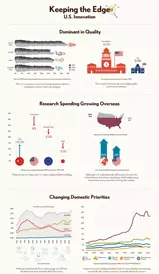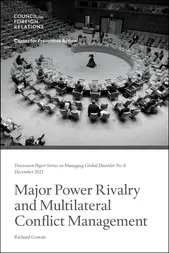- RealEcon
- Israel-Hamas
-
Topics
FeaturedIntroduction Over the last several decades, governments have collectively pledged to slow global warming. But despite intensified diplomacy, the world is already facing the consequences of climate…
-
Regions
FeaturedIntroduction Throughout its decades of independence, Myanmar has struggled with military rule, civil war, poor governance, and widespread poverty. A military coup in February 2021 dashed hopes for…
Backgrounder by Lindsay Maizland January 31, 2022
-
Explainers
FeaturedDuring the 2020 presidential campaign, Joe Biden promised that his administration would make a “historic effort” to reduce long-running racial inequities in health. Tobacco use—the leading cause of p…
Interactive by Olivia Angelino, Thomas J. Bollyky, Elle Ruggiero and Isabella Turilli February 1, 2023 Global Health Program
-
Research & Analysis
FeaturedA clear-headed vision for the United States' role in the Middle East that highlights the changing nature of U.S. national interests and the challenges of grand strategizing at a time of profound change in the international order.
Book by Steven A. Cook June 3, 2024
-
Communities
Featured
Webinar with Carolyn Kissane and Irina A. Faskianos April 12, 2023
-
Events
FeaturedJohn Kerry discusses his work as U.S. special presidential envoy for climate, the challenges the United States faces, and the Biden administration’s priorities as it continues to address climate chan…
Virtual Event with John F. Kerry and Michael Froman March 1, 2024
- Related Sites
- More
April 13, 2016
G20 (Group of Twenty)Steven A. Tananbaum Senior Fellow for International Economics Robert Kahn argues that the case for strong and effective Group of Twenty (G20) leadership is as compelling as ever. But if the G20 is to be as effective in noncrisis times as it was in 2008–2009, it needs stronger Chinese leadership, working informally yet closely with the United States—a Group of Two (G2) within the G20. Debt policy is one area where China and the United States should cooperate this year.
August 29, 2022
MozambiqueMozambique faces a host of challenges, from escalating climate crises to an ongoing insurgency in the country's northeast, that the United States can help contain with funding from the Global Fragili…

October 19, 2015
Technology and InnovationThe United States leads the world in combining innovation quality and quantity, but the challenges are growing, particularly when it comes to scientific research. Addressing gaps in U.S. innovation policy could help ensure that the United States remains the leading innovation center for decades to come.

April 17, 2008
Middle East and North AfricaOverview In February, Martin Indyk and Richard Haass engaged leading Gulf policymakers in detailed conversations about what they are looking for from a new American president. While all those with…
December 13, 2021
Conflict PreventionDespite growing rivalry among the major powers, multilateral institutions like the United Nations can continue to play a vital role in the management of violent conflict. Washington should look for opportunities to work with these institutions and, where needed, bolster their role in cooperation with other powers to manage future regional threats to peace.

 Online Store
Online Store
